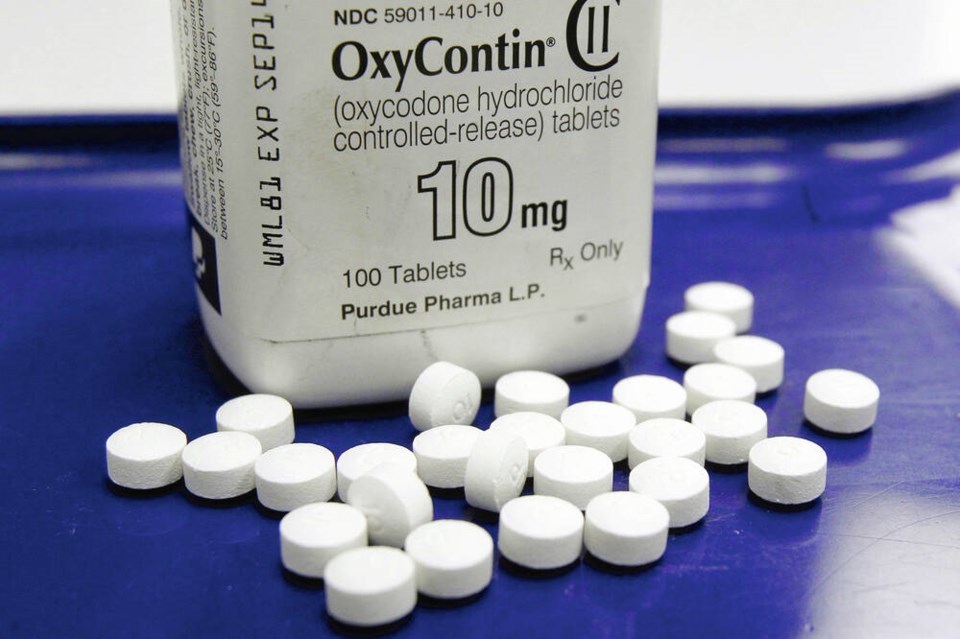A commentary by a pharmaceutical policy researcher who is the author of four books related to drug marketing, evidence-based medicine and disease-mongering. He lives in Victoria. This is the first of two commentaries on B.C.’s health policies.
Since election season is heating up in British Columbia, it’s worth looking at the track record of the NDP and ask: What can we be proud of, given their last two terms in office?
Having spent a career immersed in drug policy research and evaluation, I have seen 30 years of the successes and failures of various government health initiatives. Under the NDP, B.C.’s approach to covering prescription drugs, and funding independent analyses of the value of new drugs, have provided good coverage for citizens while optimizing the use of drug budgets.
Yet in the past four years, the NDP government seems to have lost the plot shown by some terrible, counterproductive and non-evidence-based drug policies. Let’s look at the facts on the ground to see where their leadership is striking out.
I once believed Health Minister Adrian Dix was the most competent and capable health minister in Canada. He’d spent years honing his chops as the opposition health critic and is able to answer in-depth health policy questions with rigour and clarity.
Yet his government’s handling of the opioid epidemic, the acute health worker shortages and a refusal to conduct serious evaluation of the impact of B.C.’s Covid policies are profoundly disappointing.
Even those with a cursory knowledge of the tainted drug issue would conclude that B.C.’s opioid file shows almost zero markers of success.
Opioid overdoses were declared a public health emergency in 2016, and the intervening years have seen mounting rates of deadly overdoses while the NDP doubles down on the defence of drug decriminalization and so-called “safe supply.”
It is easy to understand the nasty backlash against current drug legislation and regulation given what is happening on the streets of almost every B.C. city. Clearly public pressure has forced the government to backtrack, but let’s be clear: this is not because the NDP suddenly discovered new evidence that their policies were failing. It is because the public is fed up.
With opioids we clearly have an overuse problem, caused by an oversupply problem of highly addictive drugs (illicit and prescription) and an undersupply of good, competent advice. Bizarrely those defending current policies say overdose deaths by tainted drugs are mostly due to “stigma.”
Really?
As if destigmatizing hard drug use was going to reduce overdose deaths, a policy that draws crime and criminals, while setting fresh bait for the not-yet-addicted, like cheese in a mousetrap.
Employing stigma has been awfully good in reducing tobacco use and drunk driving, but apparently stigma is bad when it comes to the hardest most harmful substances on the planet?
Those who work with the street population tell me that most drug-dependent people on our streets don’t spend a lot of time worrying about stigma, because getting high becomes their priority.
Social disapproval can be effective to avoid detrimental health behaviours that can ruin so many young lives, including a young UVic student.
Surging opioid use in almost every jurisdiction in North America was supercharged over the years by allowing the pharmaceutical industry to insert itself into the education of our doctors.
The result? Weapons-grade pain killers used on sprained ankles and tooth extractions and more and more opioids in the medicine cabinets of citizens who are most likely to be hurt by them.
Because opioids are so terribly addictive, the best way to stop new generations of addicts is to reduce the supply, seriously stigmatize its use and otherwise prevent young people from ingesting a first pill that could lead to a lifelong opioid addiction.
B.C.’s uncontrolled experiment involving free opioids pushes bushels of dilaudid (hydromorphone) onto the streets and helps create seven or eight new dead B.C. overdose victims everyday.
Which brings us to the health worker issue. Bizarrely, B.C. continues to show no leniency towards health workers and others who (for whatever reason) refused a COVID vaccine. Encouraging vaccination back in 2021 might have made sense, even though we knew COVID vaccines hadn’t been tested nor approved to prevent transmission. Why weren’t B.C.’s independent drug analysts pointing out the lack of evidence behind mandatory vaccination policies?
Four years in, with almost everyone having had COVID despite all the vaccinating and boosting, it’s time to call this a massive policy failure and reinvite all fired health workers back to the job.
Yet Dix doubles down, clinging to an unscientific piece of junk policy like flotsam to a drowning man.
Now partly thanks to this, we’ve got a massive post-pandemic health staffing shortage and almost 2,000 fired health care workers, including paramedics, long-term care staff, doctors and nurses not working in their chosen field.
Others, perhaps fed up with the system, don’t want to come back because they are disgusted by policies that violated two key principles of medical ethics: personal autonomy and patient-centred decision making.
I’d like to see a bit of humility. How about some courage to admit mistakes and reversing course with political but not scientific policies, and admitting that their policy failures are only adding to the misery and dysfunction in our society?
Thursday: A closer look at B.C.’s COVID policies.
>>> To comment on this article, write a letter to the editor: [email protected]



